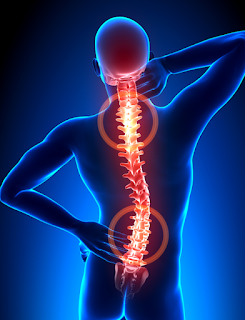How to Treat a Bulging Disc in Florida: A Step-by-Step Guide to Managing Symptoms
A bulging disc occurs when a spinal disc extends beyond its normal boundary, often causing pain, numbness, or discomfort. This condition commonly affects the lower back and neck, leading to mobility issues and persistent discomfort. Proper bulging disc treatment in Florida is essential to managing symptoms and preventing further complications. Understanding the causes, symptoms, and available treatment options can help individuals regain mobility and live pain-free.
Understanding the Causes
and Symptoms
A bulging disc
can develop due to age-related degeneration, poor posture, heavy lifting, or
sudden trauma. It is often mistaken for a herniated
disk, but the two conditions differ. While a bulging disc occurs when
the disc protrudes without rupture, a herniated disk happens when the outer
layer tears, exposing the inner material. Common symptoms include localized
pain, tingling, weakness, and stiffness in the affected area. If the disc
compresses a nerve, it can lead to radiating pain down the arms or legs.
Non-Surgical Treatment
Options
Many cases of
bulging discs can be managed with non-invasive treatments. Physical therapy
plays a crucial role in strengthening the surrounding muscles and improving
flexibility. Lifestyle modifications, such as maintaining proper posture,
avoiding heavy lifting, and using ergonomic furniture, can also alleviate
symptoms. Over-the-counter pain relievers and anti-inflammatory medications may
help reduce discomfort. Chiropractic adjustments and spinal decompression
therapy are other effective options that can relieve pressure on the affected
disc.
When to Consider Advanced
Medical Treatments
If
non-surgical methods do not provide relief, advanced medical interventions may
be necessary. Epidural steroid injections can help reduce inflammation and
pain, allowing for better mobility. In severe cases where nerve compression
causes significant pain or weakness, surgical procedures like microdiscectomy
or spinal fusion may be considered. Consulting with a specialist will help
determine the best course of action based on the severity of the condition.
Seeking
professional guidance is essential for effective treatment of a bulging disc. A
combination of physical therapy, medication, and lifestyle modifications can
help manage symptoms, while advanced treatments may be needed for severe cases.
If you are experiencing persistent pain, consulting with Total Spine &
Brain Institute can provide you with the expertise and care needed to restore
spinal health.




Comments
Post a Comment